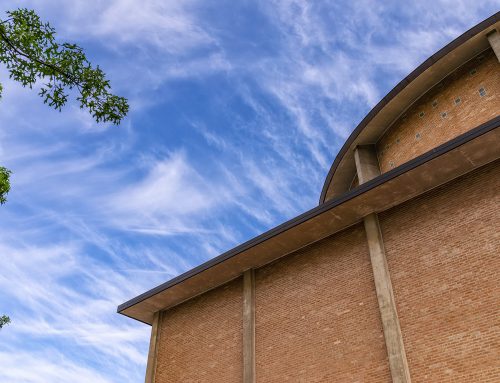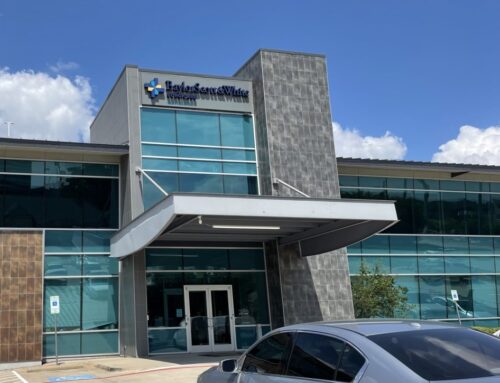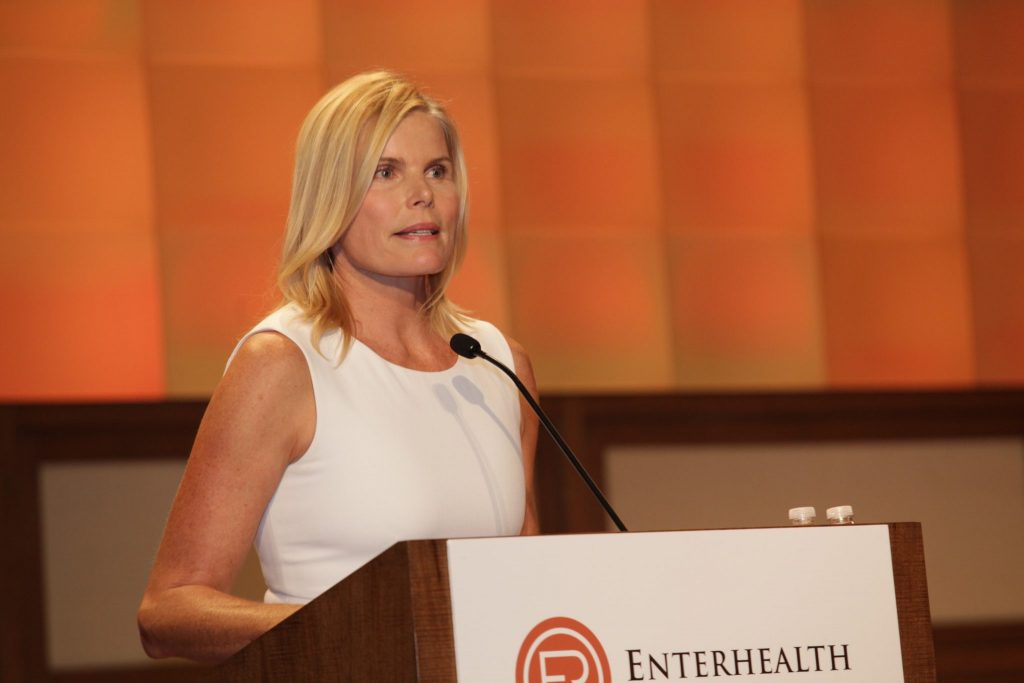
Mariel Hemingway at the Bush Institute on Oct. 13, 2016. (Photo by Rob Wythe, Gittings)
Mariel Hemingway’s childhood was a chaotic cloud of substance abuse and mental illness. Seven family members committed suicide, including her famed literary grandfather, Ernest, and big sister Marguax. It sparked a lifelong search for peace and balance, a story she shared on Thursday evening at the George W. Bush Institute.
“It’s actually not extraordinary at all,” she says of her story. “It’s everywhere. We all are touched by mental imbalances. By addiction.”
For Hemingway, crazy was the normal way of life growing up in Sun Valley, Idaho. It began at “wine time,” her family’s daily drinking hour. One or two glasses and everyone was laughing, she says, but by the third or fourth, the harsher sides came out.
“I remember hearing screaming matches between my parents,” she says. “I’d come downstairs and there’d be blood on the walls and broken glass everywhere.”
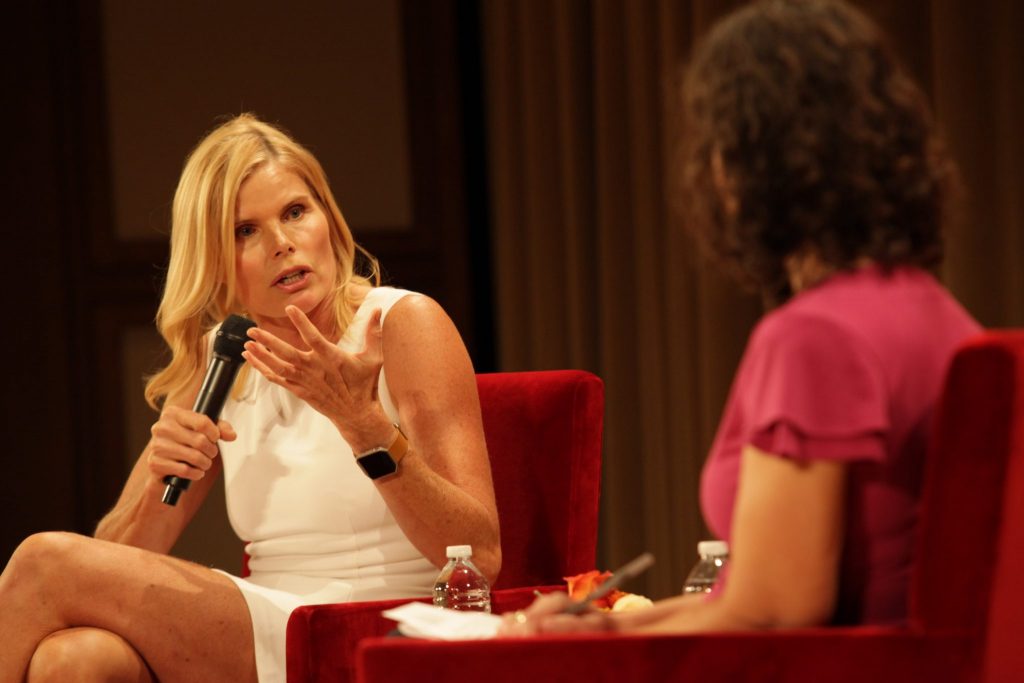
Mariel Hemingway at the Bush Institute on Oct. 13, 2016. (Photo by Rob Wythe, Gittings)
Her 6-year-old brain decided she could fix it. She could clean up the mess and erase any signs of the fight, and “everything would be ok.” It was naively impossible, but an idea she clung to for years as she became to grounded, calming force in her chaotic family.
When older sister Margaux (who was born Margot but changed it to the French spelling when she became famous) was discovered as a supermodel, the family was once again in the limelight. Margaux had her first shot at a movie stardom in the 1976 thriller “Lipstick.” While it was universally panned, it also served as Mariel Hemingway’s film debut, playing the little sister of her real-life sister and clearly, she stood out.
“My mother called me into the room and said ‘Woody Allen is on the phone for you,’” Hemingway remembers.
The “Annie Hall” director wanted Hemingway for the 1979 cinema darling “Manhattan,” a role that earned her an Oscar nomination and launched her into stardom. But she faced a daily struggle with the ghosts of her childhood. While she stayed away from harmful substances, the pursuit of living cleanly became her own type of addiction.
Diets? She tried them all — vegetarian, vegan and even raw. “That was a rough year,” she says with a laugh.
She explored every exercise style, along with other new-age healing practices. “I’ve sweated in a lot of odd places,” she smiles.
The pinnacle moment came when she had a near-private meeting with the Dalai Lama. They smiled at each other and laughed, she says, before he told her simple words that would change her life. “He said, ‘You’re OK,’” she says through tears.
In a life where she never felt even remotely OK, it was exactly what she needed to hear. She realized, “At our core, we are all fine.”
Hemingway knows her path isn’t for everyone, but hopes she can inspire other families who have struggled with mental illness. Her film “Running From Crazy” and book “Out Came the Sun” both explore this path along with her familial battle with addiction and suicide. It’s why she was invited to speak last week by neighborhood rehab facility EnterHealth, which prides itself on healing the whole family, not just the addict, something Hemingway says is critical for true recovery.
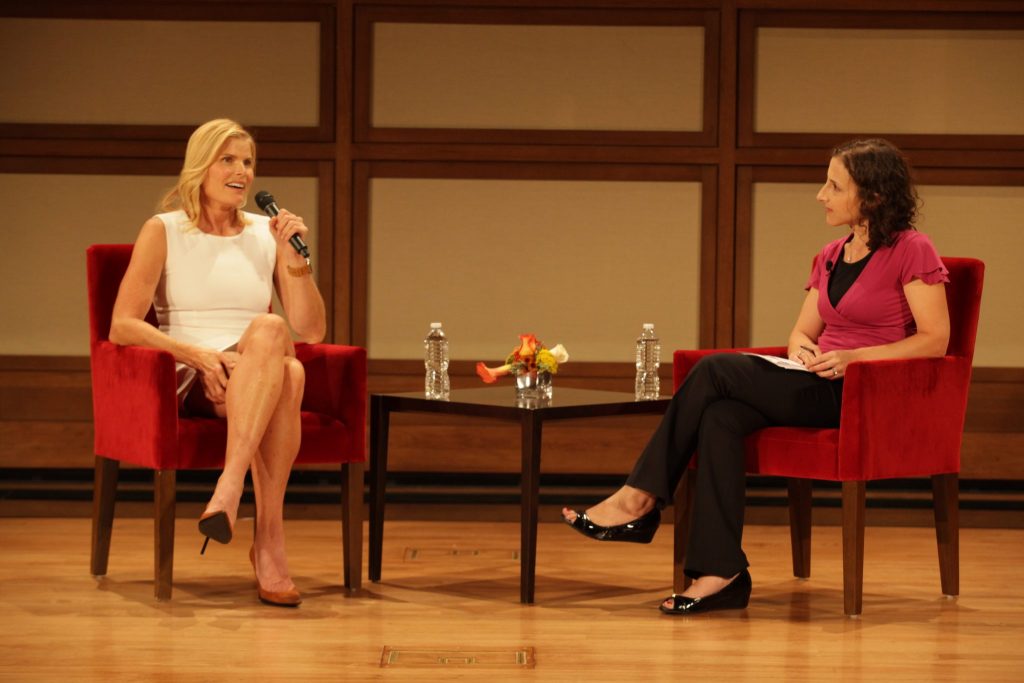
Mariel Hemingway interviewed by Amy Jones at the Bush Institute on Oct. 13, 2016. (Photo by Rob Wythe, Gittings)


